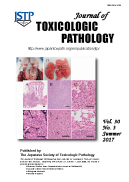
Journal of Toxicologic Pathology
Scope & Guideline
Elevating Research in Toxicologic Pathology Worldwide.
Introduction
Aims and Scopes
- Toxicological Pathology:
The journal primarily focuses on the pathology associated with toxicological studies, exploring how various substances affect organ systems and cellular structures in animal models. - Histopathological Investigations:
Research published often includes detailed histopathological examinations, providing insights into the morphological changes induced by toxic agents, which is crucial for understanding the mechanisms of toxicity. - Biochemical and Molecular Assessments:
In addition to histopathology, there is a consistent emphasis on biochemical and molecular analyses, allowing for a comprehensive understanding of the toxicological effects at the cellular and molecular levels. - Preclinical Models:
The journal frequently publishes studies utilizing various animal models to investigate the effects of substances, facilitating the translation of findings to human health risks. - Innovative Techniques and Methodologies:
The journal encourages the use of advanced techniques, such as imaging, molecular profiling, and artificial intelligence, to enhance the assessment of toxicological impacts.
Trending and Emerging
- Neurotoxicity and Neurological Disorders:
There is an increasing emphasis on studies related to neurotoxicity, particularly those examining the effects of drugs and chemicals on the nervous system, highlighting a growing concern about neurological health. - Use of Organoids and Advanced Cell Models:
Research utilizing organoids and advanced cellular models for toxicity assessment is on the rise, showcasing innovative methodologies that provide more relevant biological insights. - Integrative Approaches Combining Pathology with Genomics:
Emerging studies are increasingly integrating pathological assessments with genomic and transcriptomic analyses, allowing for a more nuanced understanding of the mechanisms underlying toxicological effects. - Environmental Toxicology and Chemical Safety:
There is a notable trend towards addressing environmental toxicology, particularly in relation to the safety of chemicals and their impact on public health, reflecting societal concerns over environmental hazards. - Artificial Intelligence and Machine Learning in Toxicology:
The application of AI and machine learning techniques to analyze pathologic data is gaining momentum, indicating a shift towards more data-driven approaches in toxicologic pathology.
Declining or Waning
- Traditional Toxicology Assessments:
There appears to be a waning interest in conventional toxicology assessments that do not incorporate modern methodologies or interdisciplinary approaches, suggesting a shift towards more integrated and innovative research frameworks. - Single-Endpoint Studies:
Studies focusing on single endpoints or outcomes in toxicology are less common, as there is a growing preference for comprehensive analyses that consider multiple factors and effects. - Veterinary Toxicology Studies:
Research specifically centered on veterinary toxicology is becoming less prevalent, potentially due to a broader focus on human health implications and translational research.
Similar Journals

Current Research in Toxicology
Advancing Knowledge for a Safer FutureCurrent Research in Toxicology is a pioneering journal published by ELSEVIER that serves as a vital platform for disseminating cutting-edge research in the field of toxicology, spanning from biological impacts to pharmacological applications. With an ISSN of 2666-027X and an impressive Q2 ranking in key categories such as Applied Microbiology and Biotechnology, Health, Toxicology and Mutagenesis, and Toxicology, this journal underscores its commitment to high-quality research and significant contributions to the scientific community. Based in the Netherlands, Current Research in Toxicology aims to bridge the gap between academia and industry by providing rigorously peer-reviewed articles that cover a wide array of topics including novel methodologies, regulatory challenges, and emerging trends within the domain. The journal is accessible through various platforms, making it essential for researchers, professionals, and students eager to stay updated on the latest findings and advancements in toxicology. With a comprehensive focus on integrating theory with practical application, this journal is poised to influence future studies and policies in health and environmental science.

HISTOLOGY AND HISTOPATHOLOGY
Fostering Insights into Tissue Structure and FunctionHISTOLOGY AND HISTOPATHOLOGY, published by F HERNANDEZ, is an esteemed academic journal dedicated to advancing the fields of histology and pathology. With its ISSN 0213-3911 and E-ISSN 1699-5848, this journal has been a crucial resource for researchers and professionals since its inception in 1986. The journal enjoys a strong reputation, evidenced by its Q2 category rankings in both Histology and Pathology & Forensic Medicine as of 2023, positioning it within the top tier of scholarly publications. With Scopus rankings placing it at Rank #74/208 in Medicine - Pathology and Forensic Medicine and Rank #31/62 in Medicine - Histology, it proves to be an essential platform for disseminating significant research findings and innovations. Although the journal is not open access, it is committed to providing high-quality, peer-reviewed articles that cater to the needs of its academic community. With a focus on fostering a deeper understanding of tissue structure and disease mechanisms, HISTOLOGY AND HISTOPATHOLOGY serves as an indispensable resource for students, researchers, and practitioners alike, facilitating the exchange of knowledge and pioneering research in these vital areas of study.
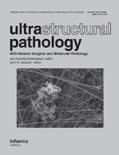
ULTRASTRUCTURAL PATHOLOGY
Pioneering Research in Forensic and Experimental PathologyULTRASTRUCTURAL PATHOLOGY is a prestigious academic journal published by Taylor & Francis Inc, focusing on the intricate and detailed aspects of pathology as well as forensic medicine since its inception in 1980. With an ISSN of 0191-3123 and an E-ISSN of 1521-0758, this journal provides a vital platform for researchers and professionals to disseminate innovative findings pertinent to both clinical and experimental pathology. Despite not being an open-access journal, its contributions are critical within its categories, positioned at the Q3 quartile in Pathology and Forensic Medicine and Q4 in Structural Biology as of 2023. The journal's reputation is further underscored by its Scopus rankings, placing it in the 41st percentile for Pathology and 15th percentile for Structural Biology, indicating a competitive standing in these fields. ULTRASTRUCTURAL PATHOLOGY aims to foster rigorous scholarly discourse and advance knowledge through the publication of original research articles, reviews, and case studies, making it an essential resource for academics, practitioners, and students engaged in the evolving domains of pathology and structural biology.
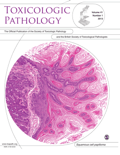
TOXICOLOGIC PATHOLOGY
Unraveling the Mysteries of Substances and Biological SystemsTOXICOLOGIC PATHOLOGY, published by SAGE Publications Inc., is a dedicated journal that serves as a pivotal platform for researchers and professionals in the fields of toxicology and pathology. With an ISSN of 0192-6233 and E-ISSN of 1533-1601, the journal has been committed to advancing knowledge since its inception in 1972. It boasts impressive rankings in the recent 2023 category quartiles, achieving Q2 in Pathology and Forensic Medicine, and Q3 in Cell Biology, Molecular Biology, and Toxicology, marking it as a significant contributor to these vital disciplines. Despite its non-open access status, the journal ensures accessibility through various premium library subscriptions, providing readers with essential insights on toxicologic and pathologic research, advancing both academic inquiry and practical applications. Researchers, students, and industry professionals alike will find TOXICOLOGIC PATHOLOGY an indispensable resource, offering high-quality peer-reviewed articles that explore the complex interactions between substances and biological systems, with the aim of improving public health and safety.
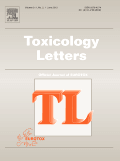
TOXICOLOGY LETTERS
Connecting research and practice for a healthier world.TOXICOLOGY LETTERS is a prominent journal dedicated to advancing the field of toxicology, providing a platform for high-quality research and reviews that explore the effects of chemical substances on biological systems. Published by Elsevier Ireland Ltd, this peer-reviewed journal has established itself as a vital resource in toxicological research since its inception in 1977, with a convergence of studies extending to 2024. With an impressive Scopus ranking, positioned at #28 out of 133 in the Toxicology category, TOXICOLOGY LETTERS garners a respectable percentile of 79, highlighting its significance in the academic community. Although it is not an open-access journal, its research is accessible through institutional subscriptions, ensuring that critical insights into human health and environmental safety are disseminated effectively. Being categorized in the Q2 quartile in both Medicine (miscellaneous) and Toxicology for 2023 further emphasizes its relevance and impact in these fields. This journal aims to foster collaboration between researchers and professionals, encouraging the exploration of innovative solutions to chemical hazards and the promotion of safer practices in pharmacology and toxicology.

Forensic Toxicology
Innovating the Future of Forensic Toxicology ResearchForensic Toxicology is a premier journal published by Springer, renowned for delivering cutting-edge research in the realms of toxicology, biochemistry, and forensic medicine. With an ISSN of 1860-8965 and an E-ISSN of 1860-8973, this journal has established itself as a significant resource for professionals, researchers, and students engaged in the analysis of toxic substances within a forensic context. Its impressive impact factor and ranking reveal its influential presence in the field, particularly as it is categorized in Q1 for Pathology and Forensic Medicine and Q2 for Biochemistry (Medical) and Toxicology. Featured articles span a wide array of topics, facilitating interdisciplinary collaboration and advancing scientific knowledge. While currently not an open-access journal, it remains accessible through institutional subscriptions. With a convergence span from 2006 to 2024, Forensic Toxicology is committed to publishing high-quality research that enhances the understanding of toxicological phenomena and their implications in forensic investigations, reinforcing its role as an indispensable resource in the scientific community.

ARCHIVES OF TOXICOLOGY
Transforming Knowledge into Public Health SolutionsARCHIVES OF TOXICOLOGY is a prestigious journal published by Springer Heidelberg, dedicated to advancing research in the field of toxicology and related disciplines. With a distinguished history dating back to 1930, this journal has continuously provided vital insights and groundbreaking studies, making it a cornerstone in the areas of health, toxicology, and medicine. Recognized for its high impact, it occupies a top-ranking position in Scopus, with remarkable quartile placements in 2023, categorizing it as Q1 in Health, Toxicology and Mutagenesis, and Q1 in Medicine (Miscellaneous). The journal highlights critical research and innovative methodologies, appealing to a diverse audience of researchers, professionals, and students committed to understanding the complexities of toxic substances and their implications for public health and environmental safety. The journal does not currently offer open access, allowing for a more traditional but rigorous peer-review process that ensures the quality and integrity of every published article. Join the global discourse in toxicological science with ARCHIVES OF TOXICOLOGY, where every contribution furthers the understanding of safety and toxicity in our world.
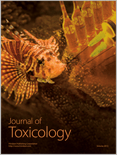
Journal of Toxicology
Connecting researchers to enhance toxicological understanding.Journal of Toxicology, published by HINDAWI LTD, stands as a pivotal open-access journal in the fields of toxicology and pharmacology since its inception in 2009. With an ISSN of 1687-8191 and an E-ISSN of 1687-8205, this journal is dedicated to disseminating high-quality research that critically examines the effects of toxic substances on living organisms. Located in Egypt and operating from their London office, it aims to provide an extensive platform for researchers worldwide to share findings that can inform better practices in safety and regulation. As of 2023, it has achieved significant recognition, holding a Q3 ranking in both the pharmacology and toxicology categories, and is indexed in Scopus with noteworthy percentile rankings (Toxicology: 57th and Pharmacology: 55th). With a focus on innovative studies and emerging areas such as environmental toxicology, biomarker research, and therapeutic interventions, the Journal of Toxicology invites both experienced researchers and students to contribute, thereby enhancing the breadth and depth of toxicological knowledge for the global scientific community.

Pathologie
Fostering Excellence in Pathology Research and PracticePathologie is a distinguished academic journal published by Springer Heidelberg, dedicated to advancing the field of pathology and forensic medicine. With an ISSN of 2731-7188 and an E-ISSN of 2731-7196, this journal serves as a vital platform for researchers, professionals, and students to disseminate innovative findings and insights. Currently ranked in the Q3 category of pathology and forensic medicine according to the 2023 metrics, Pathologie reflects a commitment to quality and relevance in a dynamic research landscape. Despite its relatively recent establishment from 2022, the journal is gaining traction with a Scopus rank of 139 out of 208 in its category, positioning itself as an emerging resource within the academic community. While it operates under a subscription model, the importance of the journal lies in its objective to facilitate the exploration of diverse pathological processes and enhance forensic methodologies, ultimately improving clinical outcomes and investigative practices. As it continues to grow, Pathologie stands poised to impact the pathology domain significantly.

JOURNAL OF APPLIED TOXICOLOGY
Leading Insights into Applied ToxicologyJOURNAL OF APPLIED TOXICOLOGY, published by Wiley, stands as a leading platform in the field of toxicology, focusing on the rigorous examination of chemical substances and their effects on biological systems. With an impressive Impact Factor, it ranks in the top quartile (Q2) for toxicology journals, reflecting its esteemed position within the scientific community. The journal, identifiable by its ISSN 0260-437X and E-ISSN 1099-1263, has been an invaluable resource since its inception in 1981, and it continues to serve as a conduit for innovative research and practical applications through 2024. Positioned at the forefront of the field, it garners recognition in the Scopus Rankings, where it ranks #31 out of 133 journals in the toxicology category, placing it in the 77th percentile—a testament to its contribution to the advancement of pharmacology and toxicological sciences. While not an open-access journal, it remains accessible to a wide audience of researchers, professionals, and students eager to explore cutting-edge findings in applied toxicology, making it a pivotal resource for enhancing knowledge and fostering collaboration in the field.